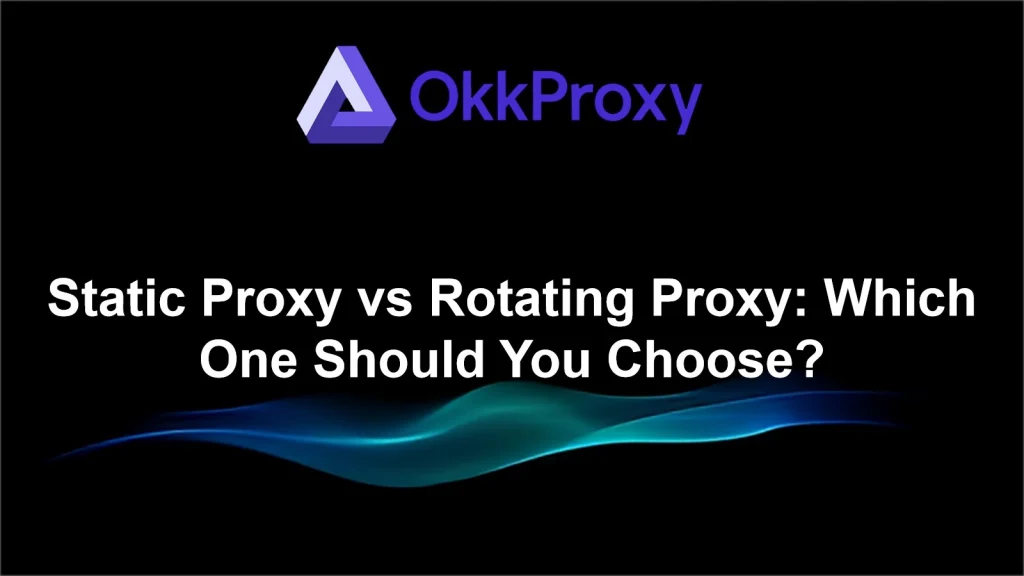In fields like cross-border e-commerce, SEO tracking, social media automation, and ad verification, choosing static proxy vs rotating proxy directly affects your project’s stability and security.
Static proxies and rotating proxies serve different purposes — each has distinct advantages, costs, and performance traits.
This guide breaks down their core differences and helps you select the most effective solution.
1. Definition & Basic Concepts
Static Proxy (Dedicated Proxy)
- Comes with a fixed, exclusive IP address that does not change over time.
- Ideal for consistent identity operations like account logins, ad accounts, or e-commerce dashboards.
Rotating Proxy
- Automatically changes IPs periodically or per request.
- Draws from a large IP pool, giving you a new IP each session — excellent for anonymity and scaling.
2. Static Proxy vs Rotating Proxy Key Differences
| Feature | Static Proxy | Rotating Proxy |
|---|---|---|
| IP Behavior | Fixed IP, consistent identity | Automatically changes IPs |
| Anonymity & Security | Stable but traceable | Highly anonymous, harder to detect |
| Performance | Low latency, highly stable | May experience brief delays during rotation |
| Pricing Model | Pay per IP, higher long-term cost | Pay per GB or port, more flexible |
| Management Complexity | Easy to manage | Automated, ideal for large-scale tasks |
3. Pros & Cons
Static Proxy
✅ Pros
- Extremely stable and reliable for long-term logins.
- Consistent IP builds account trust and reduces verification triggers.
⚠️ Cons
- Lower anonymity — banned IPs must be manually replaced.
- Higher cost, not suitable for large-scale or short-term tasks.
Rotating Proxy
✅ Pros
- High anonymity — ideal for scraping, SEO monitoring, and ad testing.
- Automatic IP rotation minimizes bans and reduces maintenance effort.
⚠️ Cons
- May experience brief instability during IP switching.
- Shared IP pools may occasionally include flagged addresses.
4. Best Use Cases
✓ Static Proxy
- Social media account management (e.g., Facebook, TikTok).
- Cross-border e-commerce platforms needing stable IP identity.
- Geo-targeted advertising and region-specific testing.
✓ Rotating Proxy
- Web scraping and large-scale data collection.
- SEO rank tracking and competitive analysis.
- Global ad verification and privacy-focused browsing.
5. Conclusion & Recommendation
- Choose Static Proxies for account stability, fixed identities, and consistent geo-locations.
- Choose Rotating Proxies for automation, high anonymity, and large-scale scraping or marketing.
💡 Looking for a reliable provider?
Try OKKProxy — offering both static and rotating residential proxies across 190+ countries.
Secure, scalable, and ideal for SEO, automation, or cross-border marketing teams.
